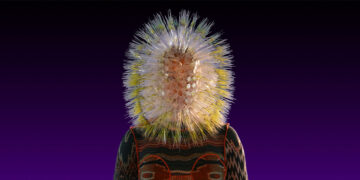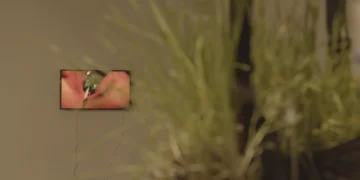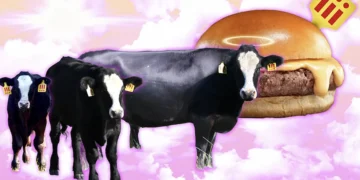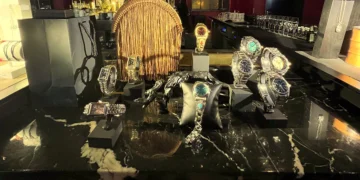
Fotografiska Berlin is opening the exhibition titled “Futuristic Ancestry: Warping Matter and Space-time(s)” by the French artist Josèfa Ntjam. The exhibition will run from June 14 to October 6, 2024, with a press preview scheduled for June 13. It explores the complex interplay of historical narratives, personal memories, and communal identities through a multi-sensory experience. Ntjam’s work goes into the stories that shape our perceptions of the world and ourselves, challenging the dominant narratives and proposing alternative perspectives that mobilize change within communities.

Josèfa Ntjam’s artistic practice combines sculpture, photomontage, film, and sound to create immersive installations. Her work frequently references biology, using microscopic views of plants and marine life to draw parallels between historical resistance movements and the resilience of microorganisms. This approach focuses on the power of small, interconnected communities to enact significant change. In “Futuristic Ancestry,” Ntjam utilizes biomorphic sculptures, video installations, and photomontages on plexiglass and aluminum to create a vivid and thought-provoking environment that encourages viewers to reconsider their understanding of history and identity.

The exhibition also includes collaborative works such as the films “Matter Gone Wild” and “Mélas de Saturne,” created with Sean Hart and Nicolas Pirus from the production company Aquatic Invasion. “Matter Gone Wild,” a 19-minute film, explores themes of revolution and oppression through three characters in a psychedelic multiverse. One character, inspired by Cameroonian independence leader Marthe Moumié, embodies the resistance of the maquis and the disruptive power of plants. These collaborative pieces emphasize Ntjam’s belief in the importance of collective creativity and networked thinking to transcend social constructs and co-create revolutionary ideas.

Josèfa Ntjam’s “Futuristic Ancestry: Warping Matter and Space-time(s)” at Fotografiska Berlin, by blending historical fact with speculative fiction, it challenges conventional narratives and encourages new interpretations of radical liberation movements. Her work underscores the transformative power of community and the continuous evolution necessary for true liberation.



















